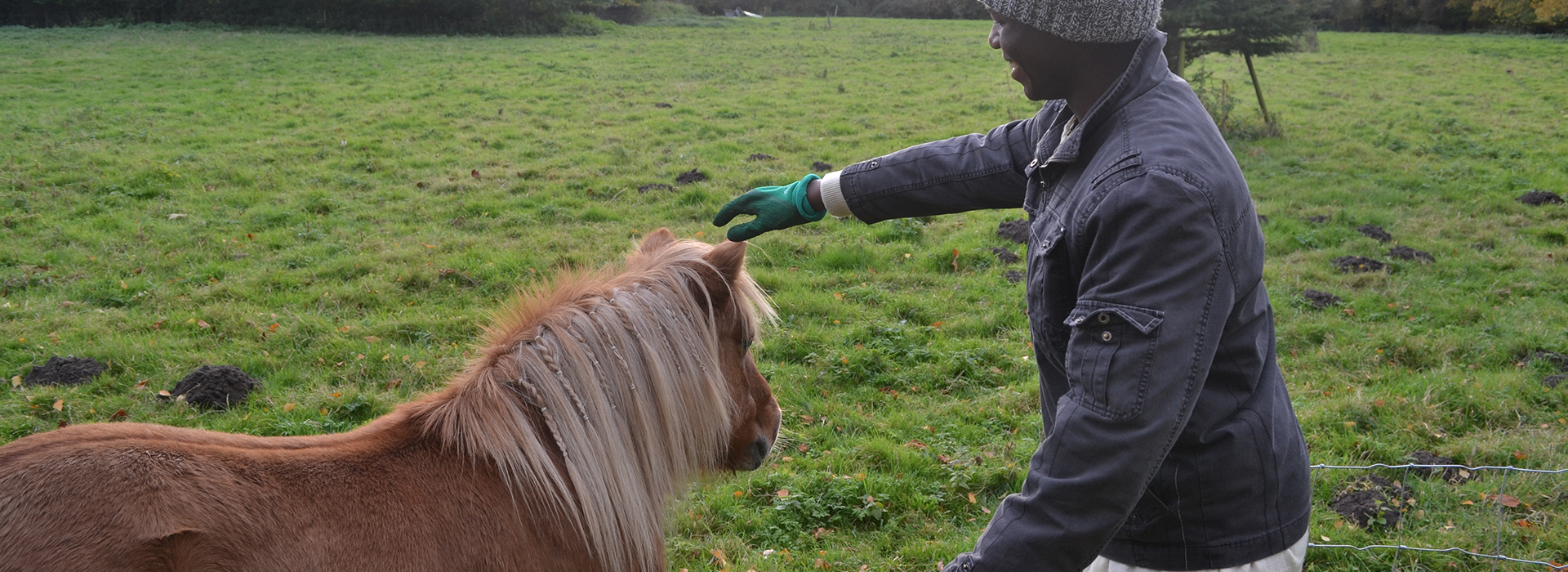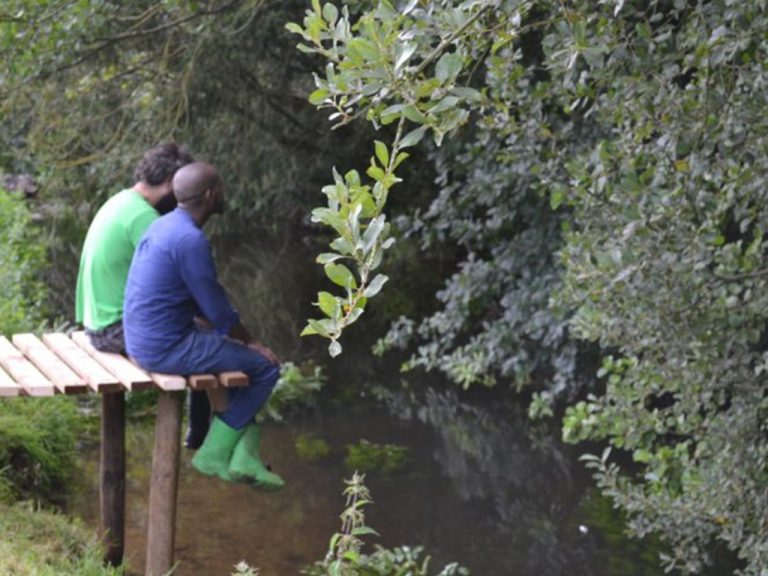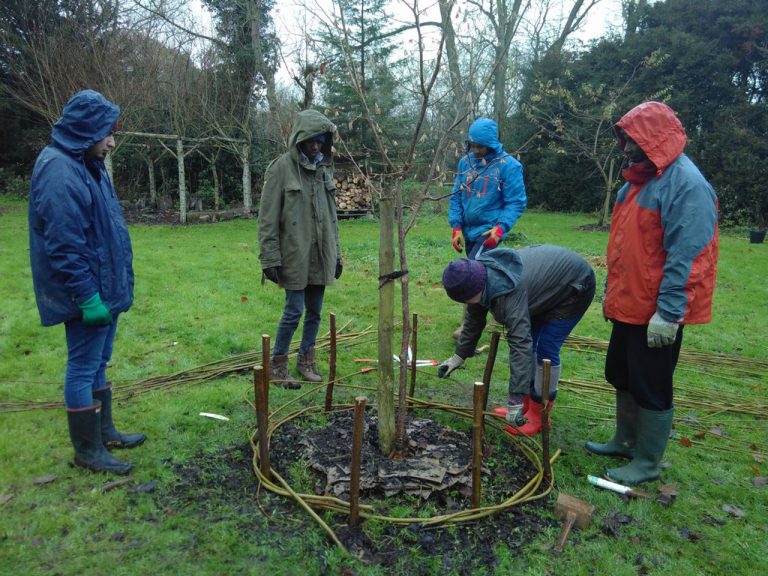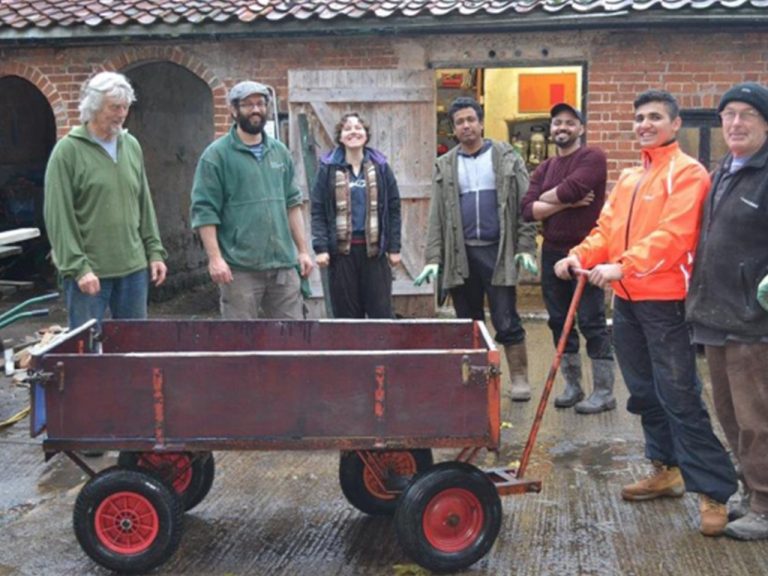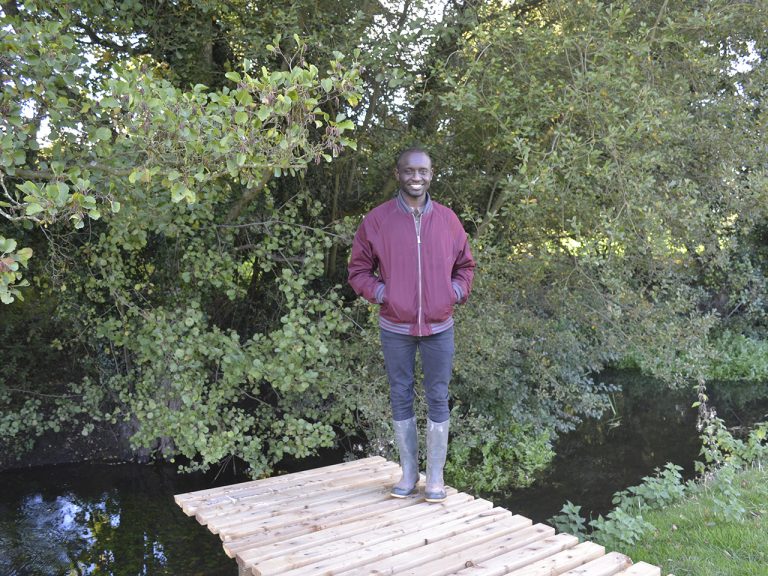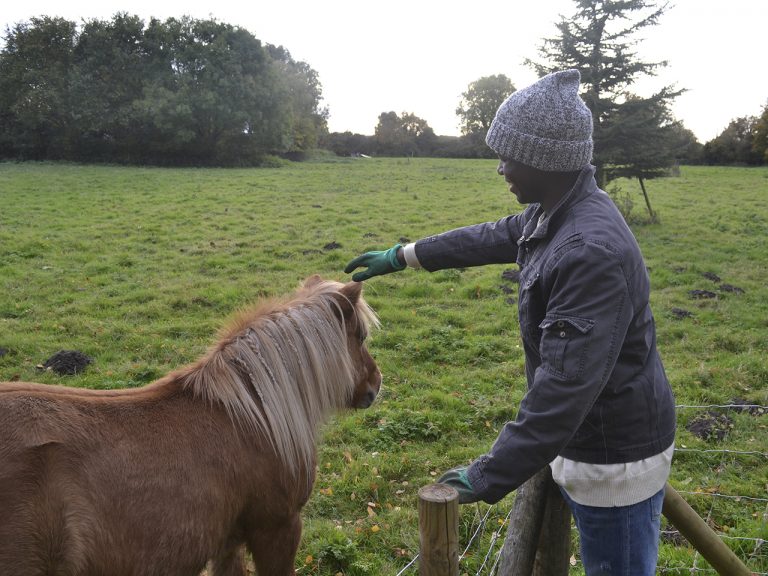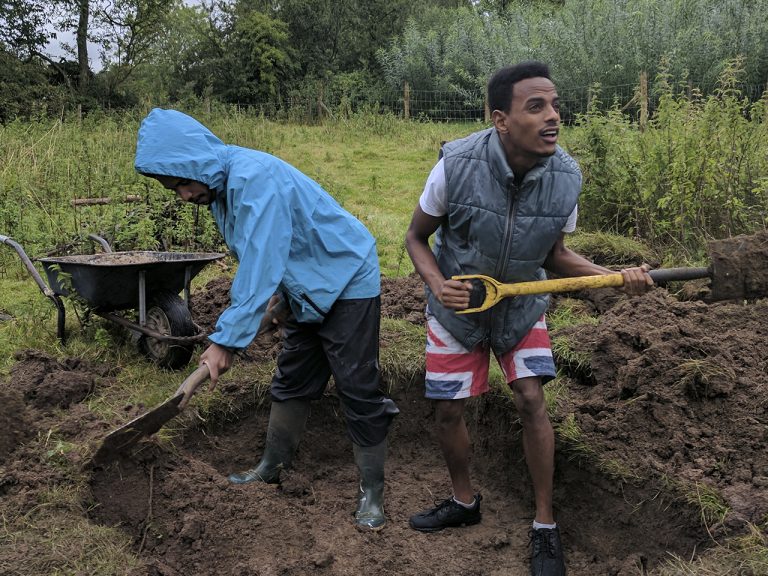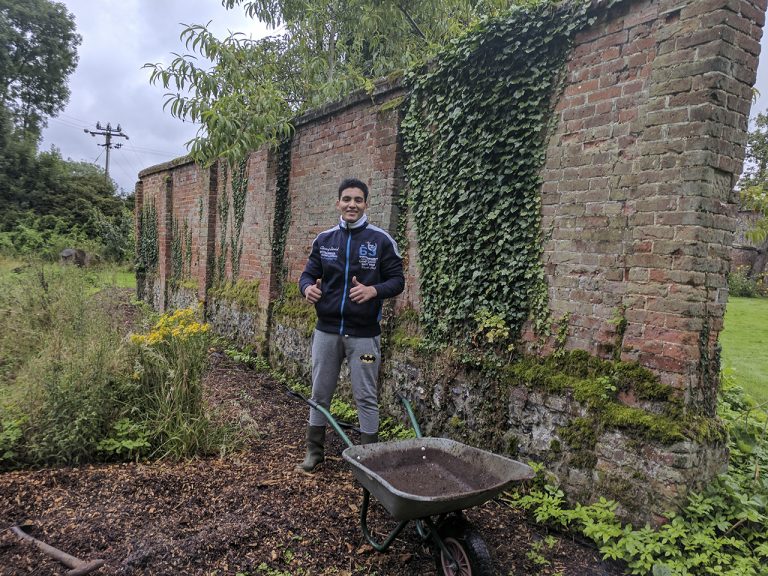Introduction
The Grange is a former Rectory building with 10 acres of gardens, situated in a small rural village in West Norfolk. The project started as a family home, and has developed over time to employ one part time member of staff who works with a range of volunteers, including many refugees and asylum seekers, to develop and maintain the gardens and outdoor spaces. The main building has 9 bedrooms, and for a time the project mainly offered residential retreats. During this period up to 12 groups of asylum seekers would visit every year for anything from 3-10 days, but due to fire restrictions the project has now moved on to only offering single-day sessions.

 English
English  Deutsch
Deutsch  Español
Español  Svenska
Svenska 